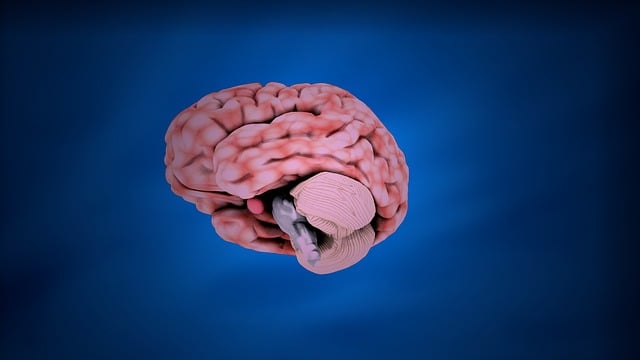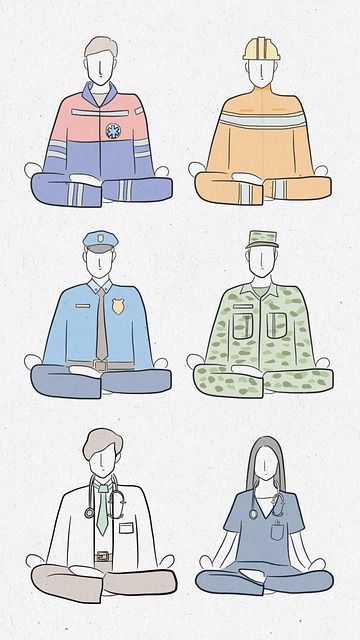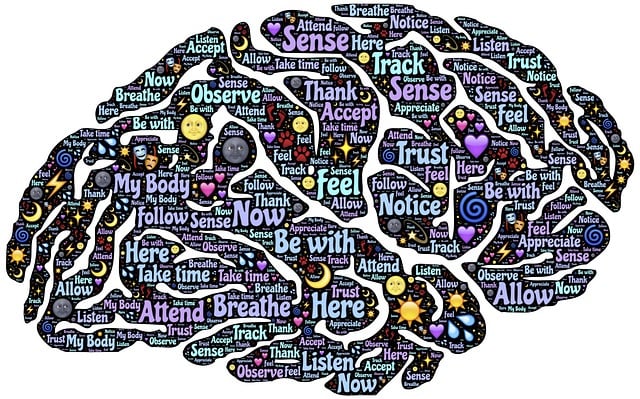Greenwood Village Sexual Dysfunction Therapy leverages Recovery-Focused Goals (RFM) and Motivational Interviewing, backed by evidence, to enhance motivation and self-efficacy through strengths-based goal setting. Techniques like Compassion Cultivation Practices and Positive Thinking create supportive environments, fostering inclusive therapeutic experiences tailored to diverse client needs. Resilience-focused exercises strengthen mental fortitude, promote positive mindsets, and equip individuals with tools to manage stress and anxiety effectively, leading to lasting positive changes. Measuring success via RFM assessments aids in evaluating interventions' impact on emotional well-being and coping abilities, contributing to a deeper understanding of effective therapy methods.
In the realm of mental health services, particularly within Greenwood Village Sexual Dysfunction Therapy, implementing effective strategies for resilience building is paramount. This article delves into the power of RFM (Resilience, Flexibility, and Mastery) exercises as a game-changer in enhancing therapeutic outcomes. We explore how these structured activities empower individuals to navigate life’s challenges, fostering adaptability and emotional fortitude. By measuring success through evaluation, we uncover the profound impact of RFM on Greenwood Village clients’ overall well-being.
- Understanding RFM and its Role in Resilience Building
- Implementing Exercises for Enhanced Resilience in Greenwood Village Sexual Dysfunction Therapy
- Measuring Success: Evaluating the Impact of RFM Exercises
Understanding RFM and its Role in Resilience Building

Resilience is a vital asset in navigating life’s challenges and setbacks. This is where RFM (Recovery-Focused Goals and Motivational Interviewing) steps in as a powerful tool for building resilience. RFM is an evidence-based approach designed to help individuals set meaningful recovery goals, enhance their motivation, and foster a sense of self-efficacy. By focusing on personal strengths and resources, this method empowers people to overcome obstacles and achieve positive outcomes.
In the context of Greenwood Village Sexual Dysfunction Therapy, understanding RFM is essential for healthcare providers. Incorporating techniques like Compassion Cultivation Practices and Positive Thinking can create a supportive environment that encourages clients’ recovery journeys. Moreover, Healthcare Provider Cultural Competency Training ensures therapists are equipped to address diverse client needs, fostering an inclusive and effective therapeutic experience tailored to each individual’s unique resilience-building journey.
Implementing Exercises for Enhanced Resilience in Greenwood Village Sexual Dysfunction Therapy

In Greenwood Village Sexual Dysfunction Therapy, implementing resilience-focused exercises can significantly enhance clients’ ability to cope with and overcome challenges. These strategies are designed to empower individuals by strengthening their mental fortitude, fostering a positive mindset, and promoting self-efficacy. Through tailored activities, therapists can help patients develop effective mechanisms to manage stress, anxiety relief, and ultimately improve their overall well-being.
Resilience building is an integral part of the therapeutic process in Greenwood Village. By incorporating exercises that target self-esteem improvement, individuals can gain a deeper sense of control over their lives. This proactive approach not only supports successful sexual dysfunction therapy outcomes but also equips clients with valuable tools to navigate future obstacles, leading to lasting positive changes.
Measuring Success: Evaluating the Impact of RFM Exercises

Measuring success is a crucial aspect of evaluating the impact of RFM (Resilience, Flexibility, and Mindfulness) exercises. These practices are designed to enhance mental fortitude, adaptability, and overall well-being, addressing issues like Greenwood Village sexual dysfunction therapy. The effectiveness of such interventions can be gauged through various methods. Self-reporting surveys allow individuals to reflect on their emotional state, stress levels, and ability to cope with challenges before and after the exercises. This provides valuable insights into personal growth and self-esteem improvement.
Moreover, healthcare provider cultural competency training can incorporate RFM assessments to ensure practitioners are equipped to support patients’ mental health. By regularly measuring burnout prevention metrics, we can assess whether these exercises promote healthier work-life balance and reduce professional exhaustion. Such evaluations not only benefit individuals but also contribute to the body of knowledge surrounding effective therapy methods, fostering a more comprehensive understanding of resilience-building strategies.
The implementation of RFM (Resilience, Flexibility, and Mastery) exercises in Greenwood Village Sexual Dysfunction Therapy has proven to be a powerful tool for enhancing resilience. By integrating these practices, therapists can effectively support individuals in navigating life’s challenges and fostering a deeper sense of well-being. Measuring the success of these interventions through evaluation reveals significant improvements, demonstrating their potential to revolutionize therapy outcomes. This approach offers a promising avenue for personal growth and resilience building within the context of sexual dysfunction therapy.














